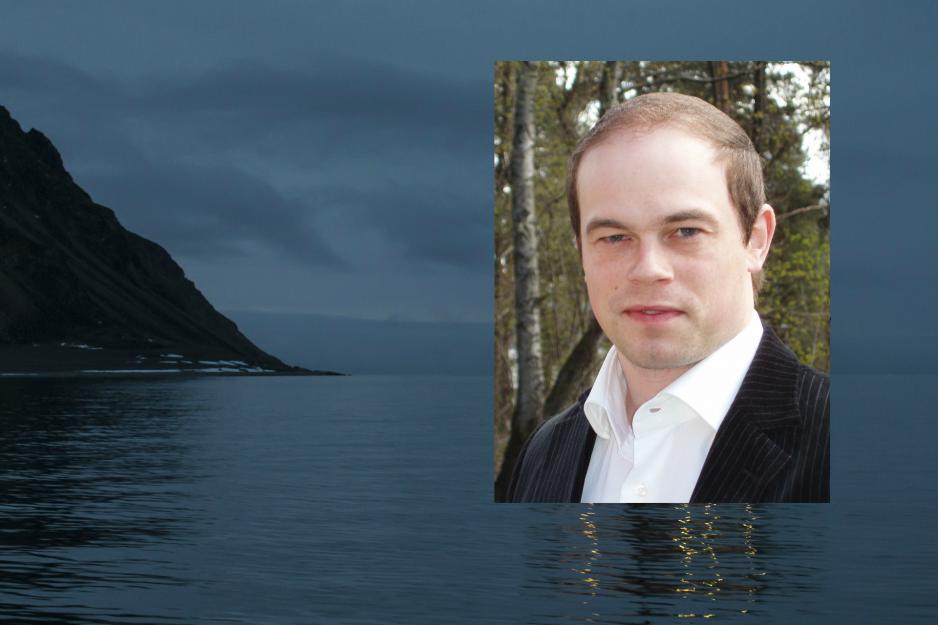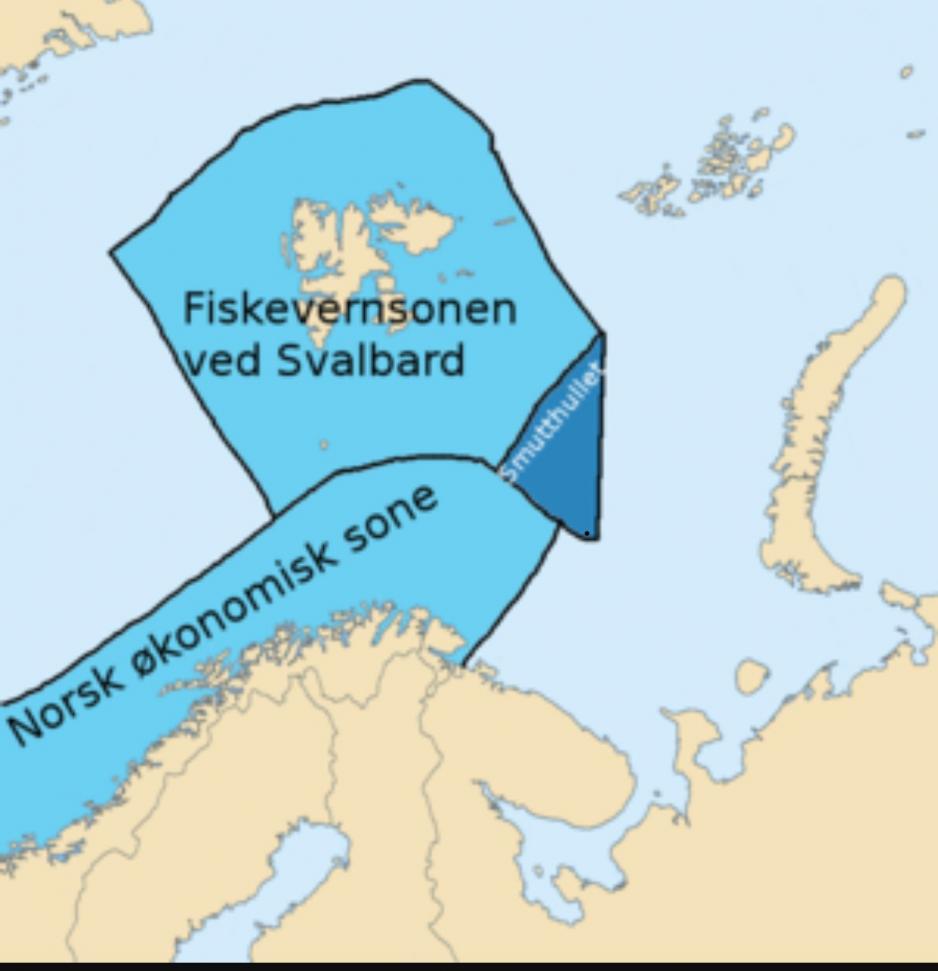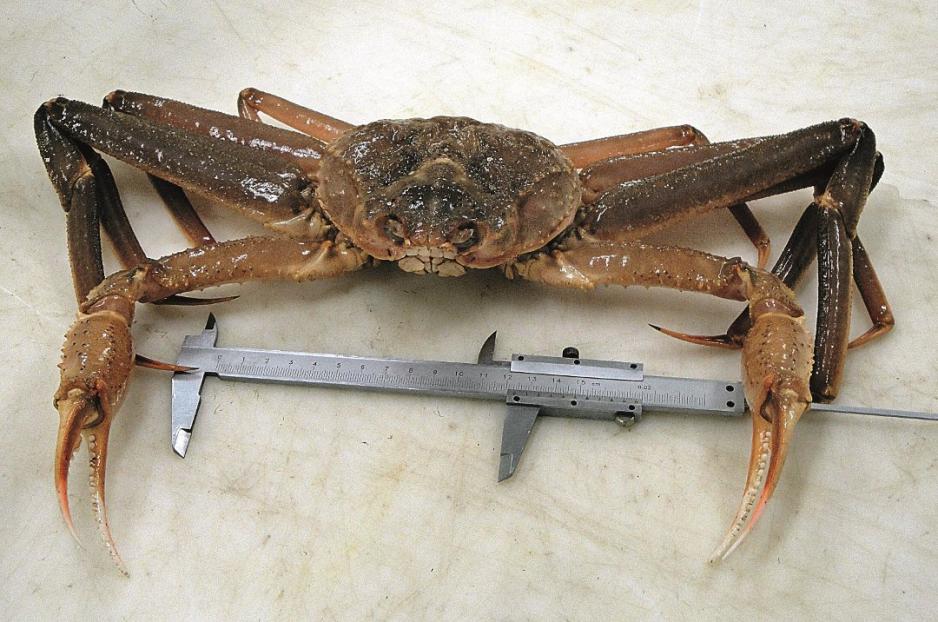- The EU must realise that Norway decides over Svalbard waters

If the Latvian fishing vessel currently on trial in Norway were to be found guilty of illegally catching snow crab, the fine will be upheld. However, the verdict will not necessarily resolve the dispute between Norway, the EU and Latvia. – The EU must realise that Norway decides over Svalbard waters, says Øystein Jensen, expert on the Law of the Sea at the Fridtjof Nansen Institute (FNI).
On 16 January, 2017 the Latvian fishing vessel ‘Senator’ was arrested for illegally catching snow crab on the continental shelf in the so-called ‘Loophole’ in the Barents Sea. The case was recently heard before the Norwegian Supreme Court and the verdict will be announced in two weeks’ time.
- The Supreme Court verdict will solve the national legal case between Norwegian authorities on the one side and the Captain and the ship owners on the other side, regarding illegal catching of snow crabs. If the Appeal Court’s verdict is upheld, the fine must be paid, Jensen says.
The case will not have any formal public international law consequences for the relationship between Norway, the EU and Latvia, according to the Law of the Sea expert, as the case is not a case between two states. However, a potential verdict in the case may have ramifications.
- The verdict may sour the foreign policy relationship between Norway and the EU should the EU maintain its view that Norway does not hold the right to enforce its sovereign rights on the continental shelf and subsequently punish foreigners who violate these rights, Jensen says.
Also read: Norway risks having to share Svalbard resources with the EU

Realize sovereignty
The EU has awarded 20 vessels the right to fish in the sea near Svalbard, whereas Norway has flatly declined.
- Regardless of the Supreme Court verdict, I believe the EU fisheries authorities will have to realise that Norway has the sovereign right to regulate snow crab fisheries on the Norwegian Continental Shelf. This applies whether or not such fisheries take place on the seabed of the shelf in the so-called ‘loophole’, on the shelf near Svalbard or elsewhere, the expert says.
If the Supreme Court convicts the ‘Senator’ of illegally catching snow crabs, the ship owners will have to pay a fine of NOK 15,000 (appr. € 1,500), and the ship owners must also pay a confiscation fine of NOK 2.5 million (appr. € 260,000). It is the first time ever that Norway uses the Marine Resources Act to arrest a vessel for conducting illegal catching on its continental shelf.
- If the Supreme Court finds in favor of the prosecutor, the case will confirm that foreigners who want to conduct catching based on the Marine Resources Act must have permission from Norwegian authorities. I find it hard to assume that the outcome of this case may be anything but a conviction. However, while the case will be legally exhausted with the Supreme Court decision, it may nevertheless sour the relationship between Norway and the EU, Jensen says.

International dispute
Even though the legal case is exhausted with the Supreme Court’s decision, it is nevertheless not impossible to imagine a public international law dispute between the EU, Norway and Latvia.
- International conflict resolution may be the end of this process, however, that is a quite different legal matter entirely, with two or more states as well as the EU as parties. It is a long, winding process that a.o. involves locating a competent court, Jensen says.
Besides, when it comes to the question about whether Norway holds the sovereign right to manage resources on the shelf with regards to issuing licenses and such, Jensen finds it hard to imagine that it will come to a point where the matter is brought before an international dispute organ to be solved.
- The solution in the on-going case before the Supreme Court is given. Norway holds the sole right to manage snow crab on the Norwegian continental shelf, the law expert says.
He argues that the interesting aspect only arises if Norway only awards snow crab catching licenses for Svalbard waters only to Norwegian vessels.
- That will raise the issue of the Svalbard Treaty’s equal treatment regulations. That is more a matter for international courts. However, it also implies processual challenges, such as e.g. what dispute settlement arrangements that are to be used. For instance, the Law of the Sea dispute resolution regulations do not apply to such matters, Jensen says.

No reason to worry about Svalbard
- Does the dispute regarding Norwegian Svalbard policy give a reason to worry?
- It is important to emphasize that there is no dispute about Norwegian sovereignty on Svalbard and based on this perspective, there is not disagreement regarding Norwegian Svalbard policy. Svalbard is a part of Norway, and Norway makes the rules on Svalbard, Jensen says.
Norway decides over the sea as well as on land as far as Svalbard goes.
- Norway is a coastal state. The only thing that can be seriously discussed, is whether resources in the sea – in the ocean as well as on the seabed – must be shared with others or not, and how much Norway can benefit from taxing such resources. I would argue that ‘worry’ is a very strong expression when it comes to other states’ rights, because the controversial about it is legally limited. The issue is, nevertheless, important from an economic perspective and of course for the Norwegian coastal industry, he says.
Update the Svalbard Treaty
The Svalbard Treaty dates back to 1920, long before both snow crabs and petroleum activities were an issue.
- Should the Svalbard Treaty be revised?
- One could imagine a new Svalbard conference where binding amendments to the treaty were adopted and where potential controversial questions could be resolved, Jensen says.
Yet he believes that such a conference could easily be risky too.
- All parties to the Treaty must agree then. Such a conference may thus quickly escalate to further disagreements or disagreements in new areas, and thus fail.
- Many countries have objected to the Norwegian fisheries zone and argue that the Treaty applies both there and on the continental shelf. The EU agrees, as does Russia. Could this lead to tensions?
- Yes, this is a controversial international policy area, says the law expert.
Les artikkelen på norsk
